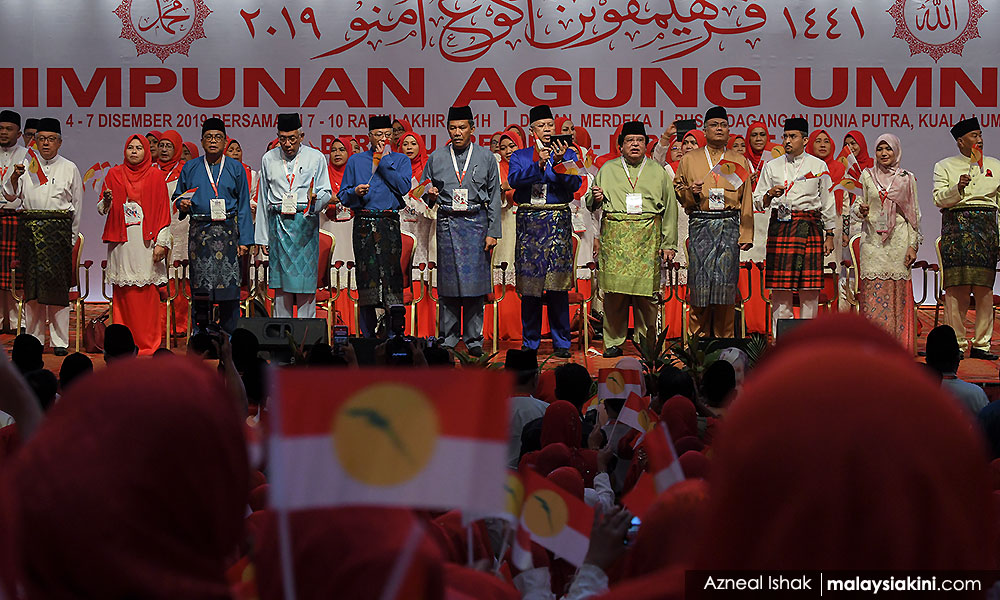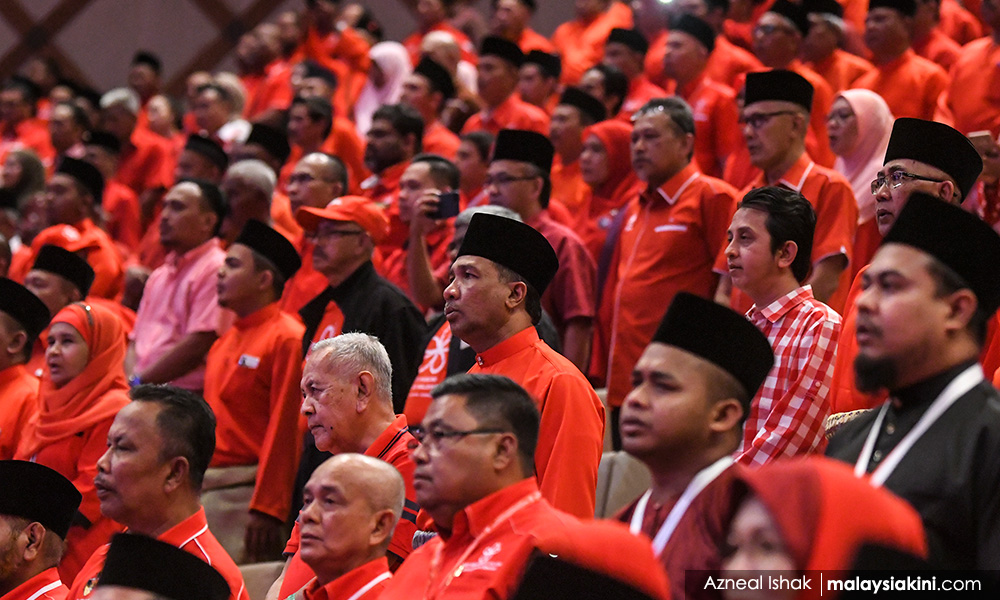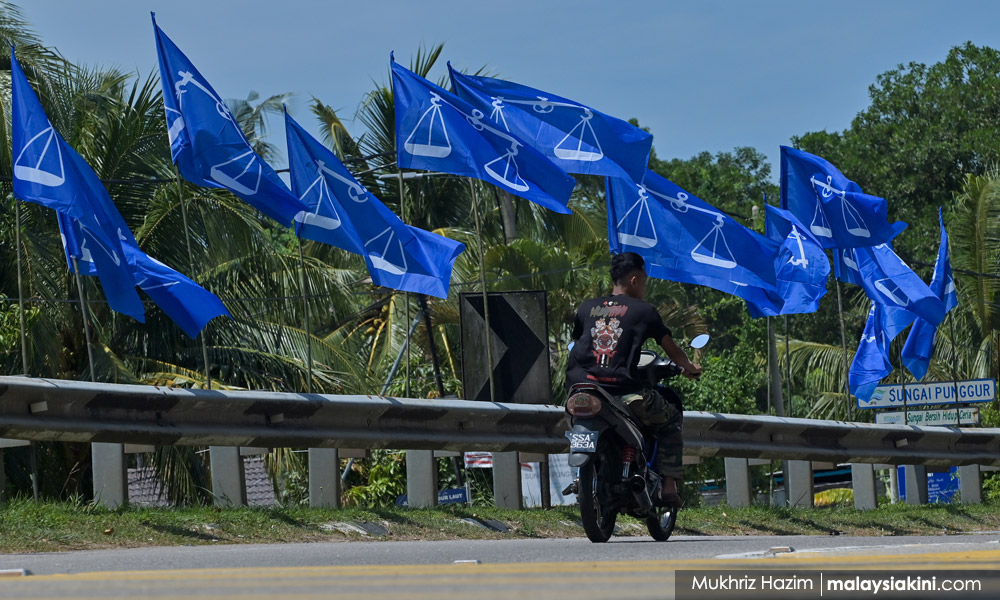A string of political developments have captured the news headlines on a daily basis.
They include the announcement of a state election in Johor; entry of Warisan in Peninsular Malaysia and Penang; the Tangkap Azam Baki campaign and demonstration; announcement of a new Royal Commission of Inquiry – this time into Tabung Haji; and further delays and new action in court cases of various high profile political leaders.
These developments – and we can expect similar ones in the coming months heading towards the next election –generate much discussion and heat especially over social media with comments by all and sundry providing a blow by blow account and instant analysis.
But will they make much difference in the way the nation is governed and in the policies affecting everyday life?
There is a common thread running through these developments which few of the key political players have pinpointed or even alluded to.
This missing vital thread is that the nation appears to be moving into a more ethnocentric phase of development.
In the literature on Malaysia, the following terms have generally been used to describe the political condition and culture of the nation:
• Partly free or hybrid regime
• Illiberal democracy
• Semi democracy
• Authoritarian state
• Failing state
• Failed state
One term which has not appeared much on the public radar because of official disapproval and the pervasive fear syndrome in all sectors of society, including recent social media, is the existence of the ethnocratic state.
Ethnocratic regimes
This description refers to a type of political, and in the case of Malaysia, socio-economic and cultural as well, structure and formation in which the apparatus and institutions of the state are dominated and controlled by an ethnic group to further its interests, power and resources.

A theory of ethnocratic regimes which appeared during the 1990s highlights how an ethnocratic society facilitates the ethnicisation of the state by the dominant group through the expansion of control aimed at domination over or conflict with minorities.
The converse of this –that ethnocratic states are primarily responsible for the ethnicisation of society –holds equally true.
It has been noted that ethnocratic regimes typically display a 'thin' or even illusory democratic façade covering a more profound ethnic structure, in which ethnicity – and not citizenship – is the key to securing power and resources.
If we go by this depiction, the usual or popular description of Malaysia’s political condition and culture contained in current writings only provides a partial picture of the true reality of the country, and the institutions and dynamics that characterise it.
Malaysia as an Ethnocracy
How relevant is the concept of an ethnocratic state to Malaysia? How has it emerged? Who are the main players and influencers? What is the impact of the ethnocratic state? How does this concept explain what is taking place in politics and society?
According to available research ethnocratic regimes are also characterised by the following:
• Monopoly of key sectors of the civil service such as the police, armed forces, judiciary, land administration, immigration, vital economic fields such as banking
• Use of strategic government instruments to secure not only racial but also class and personal interests
• Reliance on ‘thin’ or liberal democratic facade to ensure effective control over minorities
Malay dominance
Alongside these characteristics, the case of Malaysia among ethnocentric states is quite unique in several other ways. Besides Malay overwhelming control of the bureaucracy and leading institutions in the public and private sectors and the overlay of democratic processes found in elections, Malay dominance stems from a multitude of sources.
They include the unassailable position of the Yang di-Pertuan Agong and sultans; the dominance of Malay parties at federal and state levels of government (the latter in ten states); the monopoly of key positions in the cabinet including the prime ministership, deputy prime ministership and home affairs ministry; and dominance of the three branches of government – executive, legislative and judiciary.

Lastly but most importantly in our case, the factor of Islamic religious dominance is fused into the ethnocratic state. Although a secular state according to the constitution, there is continuous pressure for the development of a fuller Islamic state to strengthen ethnic with religious dominance and supremacy.
Since May 9, 2018, little or nothing has really changed in this configuration and reality of an ethnocratic and all-encompassing Malay political and Islamic religious dominance. In the civil service, mono-ethnic control is pervasive and uncontested with participation by minorities increasingly reduced to token levels.
On the political front, though there are more non-Malay elected representatives compared with the previous parliament and state assemblies, non-Malay political leaders are well aware of the limits to any challenge against Malay political dominance.
Conservative forces
They are also cognizant of the backlash from resurgent conservative Malay forces as well as pliant instruments of the state determined to protect and enhance the status quo in Malay dominance and continuation and reinforcement of the ethnocratic state by fair or unfair means.
For now, the prospect for a decline or reduction in the ethnocratic state and movement towards a genuinely pluralist democratic society appears dim and darkened.
This is clear not only from the broken and stalled reform promises contained in Pakatan Harapan’s election manifesto. Perhaps most important among recent developments is the widespread Malay opposition to the United Nations Declaration on the Elimination of All Forms.
Adopted as a general assembly resolution in 1963, almost 60 years later in 2018, the government, despite being helmed by a Pakatan Rakyat government more committed to reform than Barisan, failed to ratify the convention.
Reject racial discrimination
When will the Malay community be ready to join the great majority of ethnic communities in the world in ratifying the convention which rejects racial discrimination and the establishment of an ethnocratic state is anybody’s guess since it appears now to be consigned to the back burner in the agenda of all political parties?
As to the future, the ever-optimistic console themselves with the observation that eventually all ethnocratic systems and states –even the most entrenched as in the example of South Africa’s system of apartheid – fall apart.
Those, on the other side, note that this is no consolation as we will all be dead in the long run.
But for now, the clear writing on the wall is that dismantling of the ethnocratic state must pass through the resistance and opposition not just from the multiple sources of Malay dominance.

'Ketuanan Melayu'
Also at work to ensure the ethnocratic state’s preservation and deeper manifestation is the less discernible but equally influential network of leaders of the Malay deep state or ‘Ketuanan Melayu’ and their joint or overlapping association and relationships with those in de jure positions of authority.
Co-optation of select minority representatives to buttress the impression of a more ethically open and pluralistic state system has provided hope that the ethnocratic state is not a totally monolithic entity.
Thus we are likely to see – as in the past – some opportunities for the participation of non-Malays – albeit at the margins of power and decision making and often on a figurehead basis - that are deemed necessary and desirable for the preservation and well-being of the ethnocratic state.
But such openings are limited and difficult to come by with competition for them very pronounced.
Hope of a challenge to the ethnocratic state may come from the newest party kid on the block, Muda. But this assumes that our younger generation of leaders can look away and break free from the mirror of self-deception that has been their heritage.
The price to pay in terms of lost opportunities for self-advancement and punishment for those fighting for an equal society with no second class citizenry will be very high. Perhaps too high except for the most committed and idealistic.
GE15 will provide insights into how much longer-lived and rooted among the youth is Malaysia's ethnocratic affliction and whether we may have to wait for yet another generation before any meaningful reform or reset can happen. - Mkini
LIM TECK GHEE is a former senior official with the United Nations and World Bank.
The views expressed here are those of the author/contributor and do not necessarily represent the views of MMKtT.




No comments:
Post a Comment
Note: Only a member of this blog may post a comment.